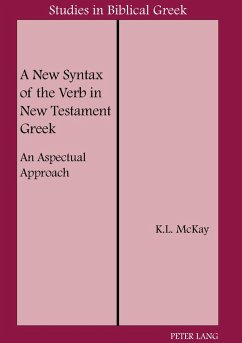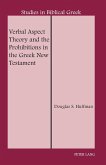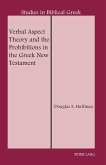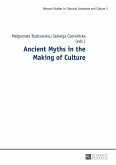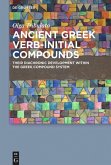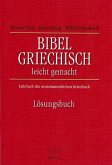In recent decades it has been increasingly recognized that the forms of the verb in ancient Greek, including that of the New Testament, do not signal time (past, present, future), but aspect (the way each activity is viewed in relation to its context). Applying the new insights, this book offers a concise and clearly stated account of the way the verb works in the syntax of New Testament Greek. Its approach is pragmatic, with emphasis on context rather than theory. It can be read as a coherent account, and its four indexes also make it a handy reference book.
«Kenneth McKay has succeeded admirably in giving a systematic, comprehensive andconcise account of the meaning and use of the verb in the Greek New Testament. He has avoided arguing small points, but gives reference to his published articles for those who wish to pursue such details further.
He pays special attention to 'aspect', shedding light on how the resources of the language are used by the New Testament writers to distinguish between processes, events (or actions seen as complete), and states - distinctions far more important in Greek than those of time which are the normal starting point for scholars whose assumed grammatical framework is modeled largely on Latin.
The virtues of the book include accurate and clear description, a wide range of helpful examples (all indexed), and unfailing attention to the context in determining the meaning. He avoids the pitfall of assuming rigid patterns of the kind sometimes assumed by those who generate 'rules' from statistics and impose them on the interpretation of the text.
This work will be found indispensable by students and scholars who wish to know how the verb is used in the actual texts, and thus to gain understanding of the fundamental documents of the Christian faith.» (E.L. Burge, Warden, Trinity College, University of Melbourne, Australia)
«...clearly written and valuable for advanced students and exegetes.» (John Herzog, Religious Studies Review)
«It should prove a valuable resource for scholars and will hopefully find its way into intermediate and advanced courses on NT Greek.» (JTR, Journal for the Study of the New Testament)
«É um instrumento de análise importante para uma comreensão mais rigorosa do NT grego.» (Revista Bíblica Brasileira)
«The book is a pleasure to use.» (B.R. Halson, The Classical Review)
«His øMcKay's! extensive acquaintance with a wide range of Greek literature and his experience on explaining the Greek language to students from a variety of linguistic backgrounds make his work at once persuasively authoritative and readily accessible. [...] His book will be an invaluable tool for the expositor willing to come to the text on its own linguistic terms» (H. Van Dyke Parunak, The Catholic Biblical Quarterly)
He pays special attention to 'aspect', shedding light on how the resources of the language are used by the New Testament writers to distinguish between processes, events (or actions seen as complete), and states - distinctions far more important in Greek than those of time which are the normal starting point for scholars whose assumed grammatical framework is modeled largely on Latin.
The virtues of the book include accurate and clear description, a wide range of helpful examples (all indexed), and unfailing attention to the context in determining the meaning. He avoids the pitfall of assuming rigid patterns of the kind sometimes assumed by those who generate 'rules' from statistics and impose them on the interpretation of the text.
This work will be found indispensable by students and scholars who wish to know how the verb is used in the actual texts, and thus to gain understanding of the fundamental documents of the Christian faith.» (E.L. Burge, Warden, Trinity College, University of Melbourne, Australia)
«...clearly written and valuable for advanced students and exegetes.» (John Herzog, Religious Studies Review)
«It should prove a valuable resource for scholars and will hopefully find its way into intermediate and advanced courses on NT Greek.» (JTR, Journal for the Study of the New Testament)
«É um instrumento de análise importante para uma comreensão mais rigorosa do NT grego.» (Revista Bíblica Brasileira)
«The book is a pleasure to use.» (B.R. Halson, The Classical Review)
«His øMcKay's! extensive acquaintance with a wide range of Greek literature and his experience on explaining the Greek language to students from a variety of linguistic backgrounds make his work at once persuasively authoritative and readily accessible. [...] His book will be an invaluable tool for the expositor willing to come to the text on its own linguistic terms» (H. Van Dyke Parunak, The Catholic Biblical Quarterly)

